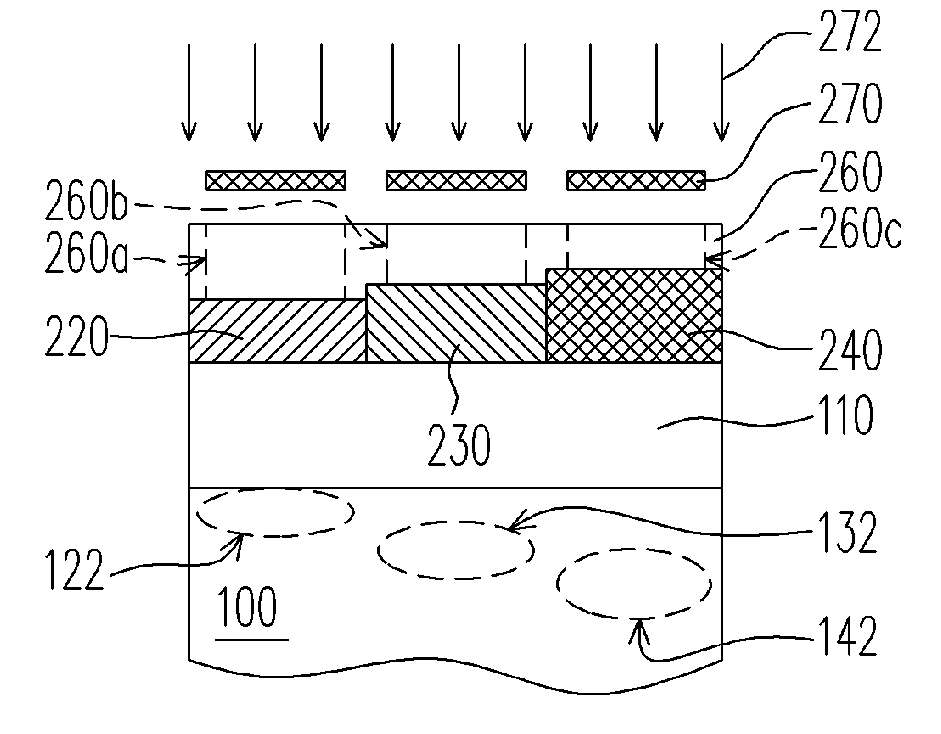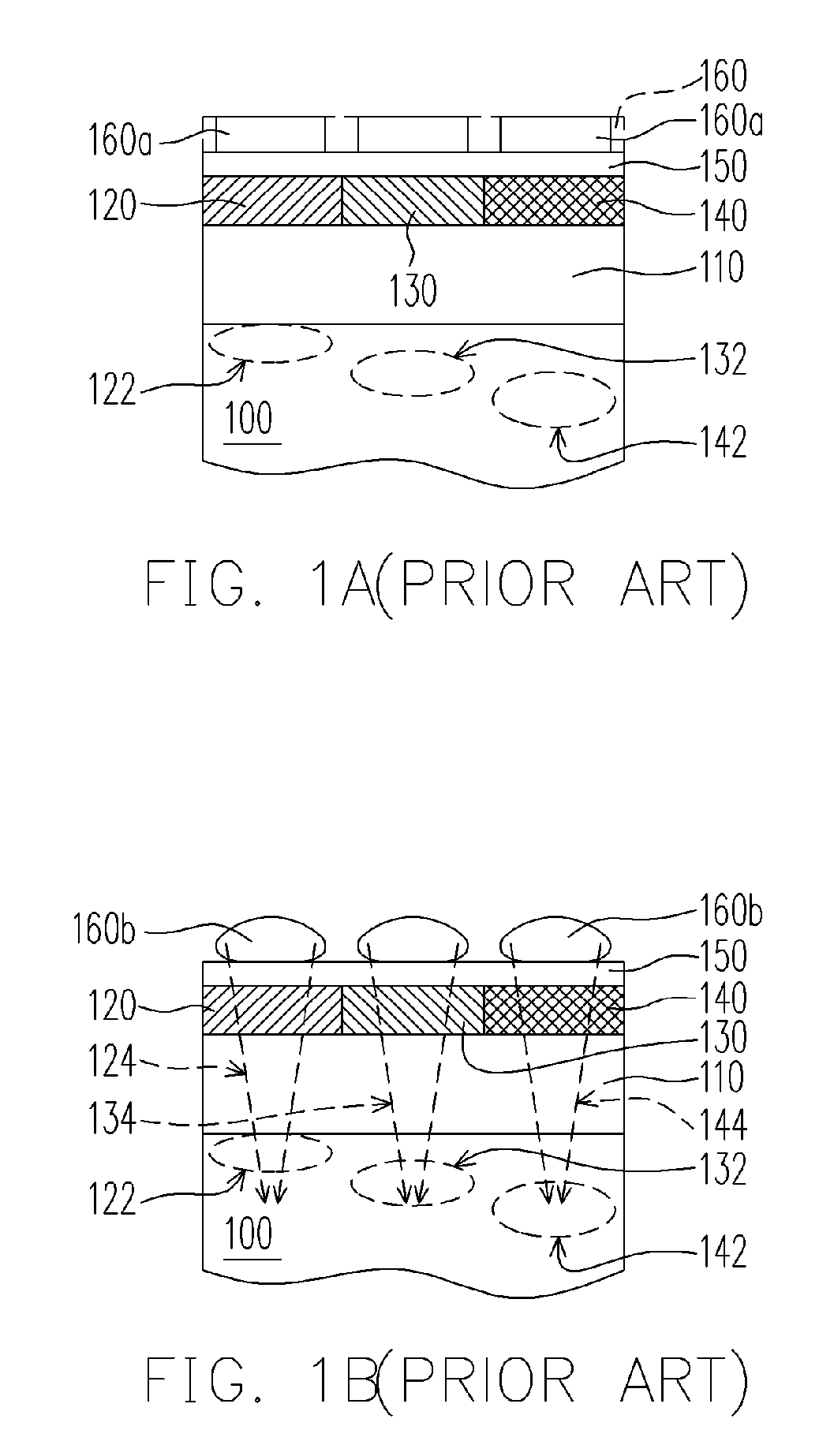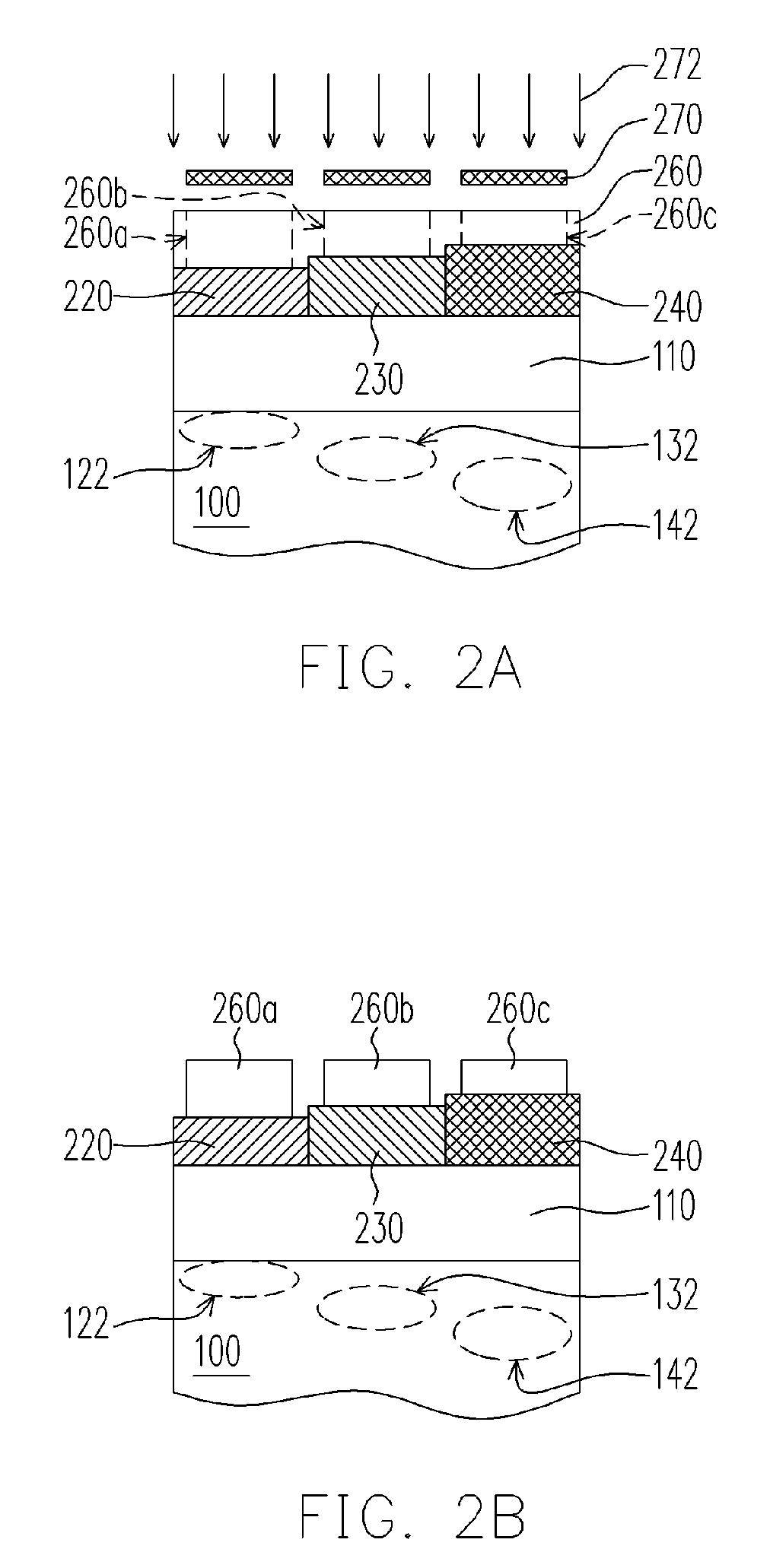Method for forming microlenses of different curvatures and fabricating process of solid-state image sensor
a solid-state image sensor and microlense technology, applied in the field of optical components, can solve the problems of inability to improve the overall sensitivity of the cis device, laborious fabrication, and laborious microlense process, and achieve the effect of improving the overall sensitivity of the solid-state image sensor and saving process tim
- Summary
- Abstract
- Description
- Claims
- Application Information
AI Technical Summary
Benefits of technology
Problems solved by technology
Method used
Image
Examples
Embodiment Construction
[0022] This invention will be further explained with a fabricating process of a CMOS image sensor as a preferred embodiment, which is illustrated in FIGS. 2A-2C in a cross-sectional view. In this embodiment, the first to third color lights as mentioned above are red light, green light and blue light, respectively, but are not limited to those. The three color lights may alternatively be magenta, cyan and yellow lights, or any other combination of three color lights that can be combined to obtain full colors.
[0023] Referring to FIG. 2A, a semiconductor substrate 100 is provided, having been formed with a circuit (not shown) thereon, which essentially includes CMOS transistors, sensor diodes and necessary interconnect structures, etc. The depths D1, D2 and D3 of the maximal absorption regions 142, 132 and 122 of red, green and blue lights in the substrate 100 satisfy the inequality of “D1>D2>D3”. Then, a passivation layer 110, such as a thick SiO2 layer, is formed over the substrate ...
PUM
 Login to View More
Login to View More Abstract
Description
Claims
Application Information
 Login to View More
Login to View More - R&D
- Intellectual Property
- Life Sciences
- Materials
- Tech Scout
- Unparalleled Data Quality
- Higher Quality Content
- 60% Fewer Hallucinations
Browse by: Latest US Patents, China's latest patents, Technical Efficacy Thesaurus, Application Domain, Technology Topic, Popular Technical Reports.
© 2025 PatSnap. All rights reserved.Legal|Privacy policy|Modern Slavery Act Transparency Statement|Sitemap|About US| Contact US: help@patsnap.com



